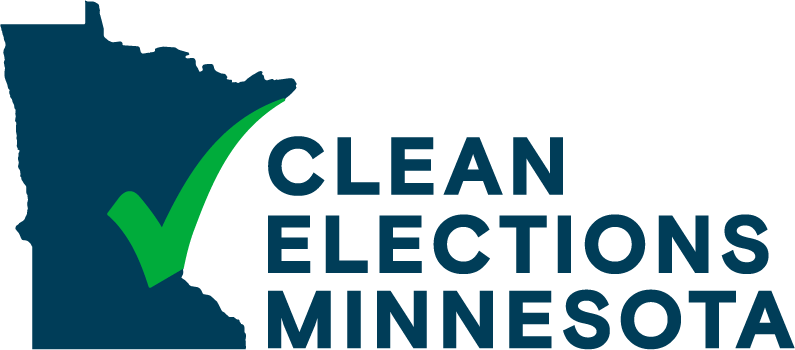Election and Campaign Reforms Supported by CEM and Passed Into Law by Minnesota State Legislature and Governor in 2024 Session
Deepfake Law
-
Introduces strict penalties for anyone distributing deepfake election campaign ads that alter audio or video to spread falsehoods. Repeat offenders could face up to five years in prison and fines up to $100,000. Those intending to incite violence or cause bodily harm could be sentenced to nearly a year in prison and fined up to $30,000. In other cases, offenders could receive up to 90 days in jail and fines up to $1,000. Thanks to Representative Zach Stephenson and Senator Erin Maye Quade for their leadership on this critical issue.
Minnesota Voting Rights Act
- Addresses racial gerrymandering and policies that suppress the BIPOC vote. It ensures individuals can sue if they believe their voting rights have been violated. This act fills the gap left by the 8th Circuit Court of Appeals’ November 2023 decision, which ruled that private citizens in its jurisdiction, including Minnesota, could no longer take federal action to protect their voting rights. Secretary of State Steve Simon remarked, “If we can no longer count on the federal Voting Rights Act to allow private citizens to protect their own voting rights, then we need a Minnesota Voting Rights Act to fill the gap.” Thanks to Representative Emma Greenman and Senator Port for their leadership.
College Campus Polling Law
-
Requires counties to provide temporary polling places on college campuses with more than 100 students if requested by colleges or student organizations. It includes funding to help counties cover the costs and mandates universities to provide voter registration forms to students during the fall and spring. This initiative ensures that young voters have better access to the polls. Thanks to Representative Pursell and Senator Mitchell.
Ending Prison Gerrymandering
- Mandates that for the purposes of the decennial census and redistricting, prisoners are counted at their home addresses rather than their prison addresses. This change aims to make redistricting more equitable and accurate. Thanks to Representative Agbaje and Senator Mitchell.
Election and Campaign Reforms Supported by CEM and Passed Into Law by Minnesota State Legislature and Governor in 2023 Session
Made elections more inclusive and easier to vote by:
-
Voting rights restored to individuals with felony convictions who are no longer incarcerated.
-
Allowed 16-and 17-year-olds to preregister to vote when they’re 18.
- Automatically registering voters when they apply for, renew or update driver’s license or apply for other government services (May opt out.).
- Penalties for candidates accepting public financing who don’t caption their campaign ads.
- Language barriers removed by requiring voting instructions and ballots in languages other than English.
- Allowing Minnesota voters to choose to vote by mail on a permanent absentee ballot list.
- Increasing the funding available to counties to make polling places more accessible.
- Required polling places to be open for voting 18 days before election day including weekends.
- Adding civics education to high school graduation requirements.
Closed dark money loopholes and reduced dependence on wealthy corporations, donors and special interests by:
- Limiting foreign influence by prohibiting foreign corporations from making contributions to candidates or political parties
- Requiring disclosure of those who contribute $1,000 or more to independent political action funds that encourage voters to back specific candidates. (Based on federal law.)
- Tripling the amount of public financing available to candidates who wish to accept it.
- Increasing the Political Contribution Reimbursement Program from $50 a person and $100 for a married couple to $75 a person and $150 for a married couple.
Paved the way to structural changes in Minnesota elections by:
- Adding Minnesota to the National Popular Vote Compact.
- Creating a Voting Task Force to explore Ranked Choice Voting on a statewide basis. (A number of Minnesota cities already use this approach in their elections.)
Protected voters, the vote and election officials by:
- Penalizing the spread of false information about voting within 60 days of an election.
- Penalizing presenting “deep fake” ads within 60 days of an election.
- Setting out procedures for a citizen to challenge residency or other qualifications of another who is registered to vote.
- Authorizing county auditors to remove poor performing election officials.
- Protecting election officials from harassment and threats.
- Making it a gross misdemeanor to interfere with a person registering to vote or casting a ballot
We are dedicated to educating Minnesotans about ways to maintain and enhance the democratic power of ordinary citizens.
